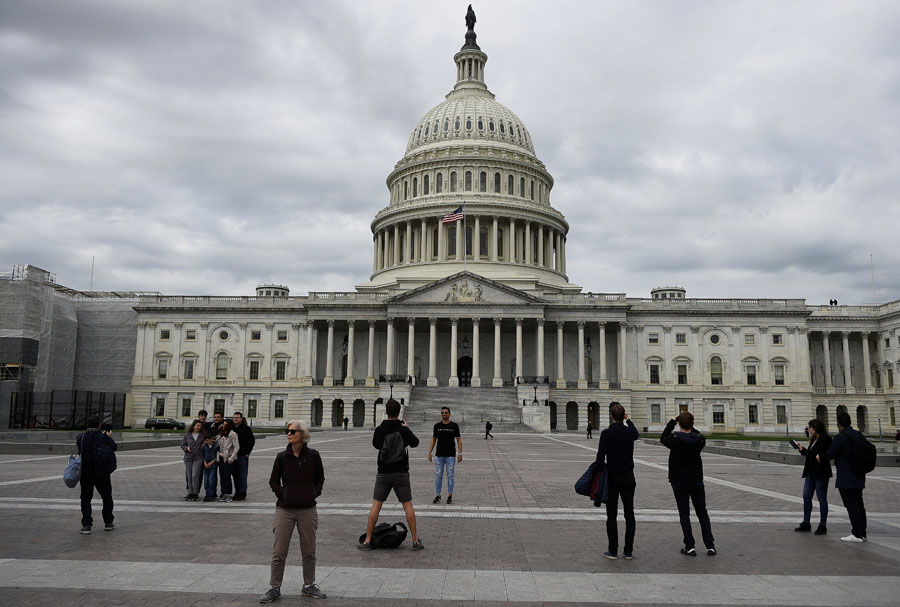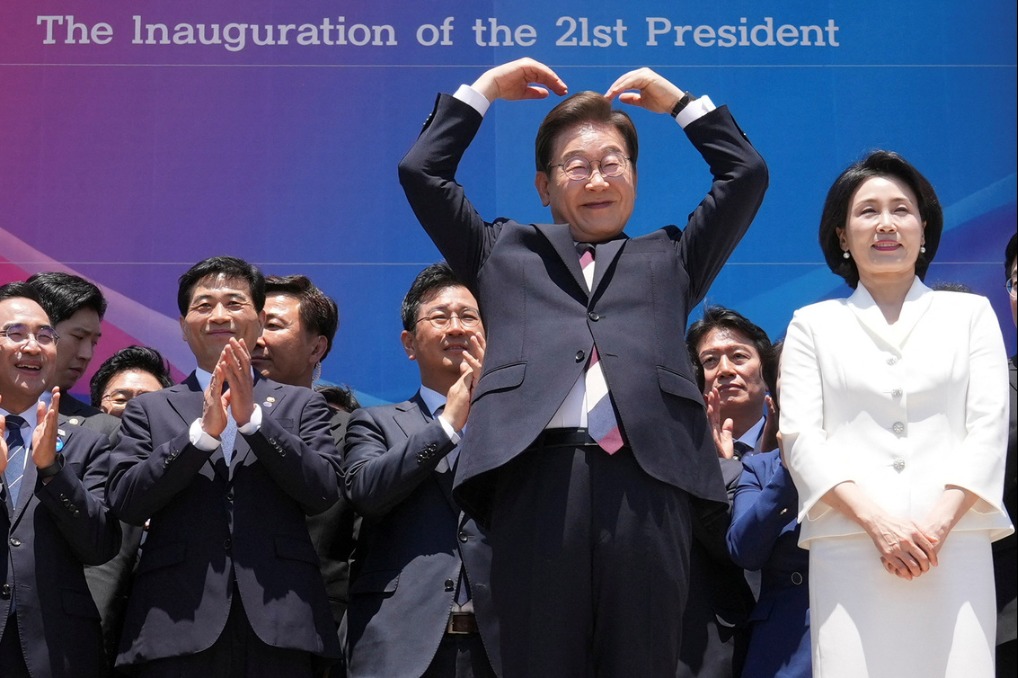Washington's recent moves damaging its soft power
Ratings: US’ use of 'hard power' called self-destructive


The United States' soft power, which it has accumulated over decades, is rapidly eroding due to a combination of protectionist trade policies, hostility toward international students and unilateral diplomatic maneuvers, experts said, warning that the damage might be irreversible.
They made the remarks after a global favorability ratings survey found that China's reputation is rising while that of the US is declining.
As of the end of May, China had an 8.8 net favorability rating, compared with the US' negative 1.5 rating, according to Morning Consult, a US business intelligence agency, which surveyed adults in 41 countries including Canada, the United Kingdom, France, Russia and Japan.
Jason McMann, head of political intelligence at Morning Consult, wrote on the agency's website that the survey results mark the first time China's global standing has surpassed that of the US since the agency started monitoring global favorability ratings.
Noting that the surveyed nations include many of the US' closest allies, McMann called the results "a clear blow to US soft power".
Experts said the US' declining reputation could damage its interests in multiple sectors. The administration of US President Donald Trump has faced widespread criticism for several of its recent policies, including targeting Harvard University and international students, unilaterally initiating tariff wars, withdrawing from major multilateral organizations, and floating the idea of "buying Greenland". These moves have largely undermined the nation's soft power, they said.
Yuan Sha, deputy director of the Department for Global Governance and International Organizations at the China Institute of International Studies, said, "The US is fundamentally a trade-based nation, but its current protectionist policies are shaking global confidence in the US trade and investment market.
"Volatility in US stocks and bonds reflects deep global uncertainty about America's economic trajectory," she added.
McMann, from the business intelligence agency, said the US' declining favorability will prove detrimental to the health of its corporate sector.
As views regarding the US worsen, "trade and investment opportunities for American firms doing business overseas may also diminish, as consumers shun the products and job opportunities they provide", he said.
Cornerstone shaken
According to a report released in May, higher education, which had long been a cornerstone of US soft power, is also under strain.
Global interest regarding studying in the US has hit its lowest point since the COVID-19 pandemic, with many international students deterred by the US' restrictive policies and visa challenges, according to a report released by Studyportals, a US education company.
Zhao Minghao, a professor at Fudan University's Institute of International Studies, said, "Foreigners, including students, are crucial to American innovation. Yet many are now reconsidering studying in the US due to the unpredictability."
In the long run, this will weaken the US' ability to attract global talent, said Zhao, who is also deputy director of the Center for American Studies at Fudan University.
According to the results of an opinion poll released in April by market research company Ipsos, the proportion of respondents who said the US will have a positive influence on global affairs dropped in 26 out of 29 surveyed countries over the past six months, with traditional allies like Canada registering a sharp decline.
Experts also attribute the US' waning popularity to its retreat from multilateralism and its abandoning of international agreements.
"As an empire that sees its strength and international clout declining and its domestic problems worsening, the US may no longer be able to afford large-scale soft power inputs," said Yuan, from the China Institute of International Studies.
"While the US might think that the use of 'hard power', or coercive unilateral actions, still works, such an approach is unsustainable and, ultimately, self-destructive," Yuan said. "Maximum pressure may coerce others to comply, but neglecting soft power and credibility will inevitably weaken the US' interests in the long run."
Zhang Guoqing, a scholar at the Chinese Academy of Social Sciences' Institute of American Studies, said the US' insistence on unilateralism in a multipolar world is accelerating its isolation.
"Soft power can rebound, but not if it is constantly squandered," he warned. "After the US' invasion of Iraq, its soft power was damaged. Although the administration of former president Barack Obama managed to recover some of it, US soft power has been in continuous decline since. The Trump administration's unilateral policies have caused deeper — and possibly permanent — damage."
Neglecting soft power could turn the US into a "hobbled superpower", Zhang said. "If the US keeps pursuing unilateralism and brute-force dominance, its soft power will keep fading, reshaping both its future and the world order," he added.































